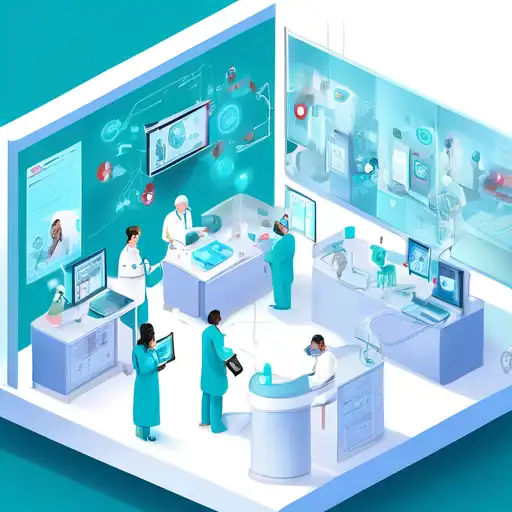Introduction to IoT in Healthcare
The Internet of Things (IoT) is revolutionizing various sectors, and healthcare is no exception. By integrating IoT devices and technologies, healthcare services are becoming more efficient, personalized, and accessible. This article explores the transformative impact of IoT on healthcare services, highlighting key innovations and benefits.
Key IoT Innovations in Healthcare
IoT technologies are being deployed in numerous ways to enhance healthcare delivery. Below are some of the most impactful innovations:
- Remote Patient Monitoring: Wearable devices and sensors enable continuous monitoring of patients' vital signs, reducing the need for hospital visits.
- Smart Hospitals: IoT devices streamline hospital operations, from inventory management to patient tracking, improving efficiency and patient care.
- Personalized Treatment Plans: Data collected from IoT devices allows for tailored treatment plans based on individual patient needs.
- Enhanced Drug Management: Smart pill bottles and dispensers ensure medication adherence, crucial for chronic disease management.
Benefits of IoT in Healthcare
The adoption of IoT in healthcare brings numerous advantages, including:
- Improved patient outcomes through timely interventions and personalized care.
- Reduced healthcare costs by minimizing hospital readmissions and optimizing resource use.
- Increased accessibility to healthcare services, especially for remote and underserved populations.
- Enhanced data collection and analysis for better decision-making and research.
Challenges and Considerations
Despite its benefits, the integration of IoT in healthcare faces several challenges:
- Data security and privacy concerns due to the sensitive nature of health information.
- High initial costs and the need for infrastructure upgrades.
- Interoperability issues among diverse IoT devices and systems.
Addressing these challenges is crucial for maximizing the potential of IoT in healthcare.
Future Prospects
The future of IoT in healthcare is promising, with advancements in AI and machine learning further enhancing IoT applications. Innovations such as predictive analytics and autonomous robotic surgeries are on the horizon, poised to redefine patient care.
For more insights into digital health innovations, explore our article on digital health trends.
Conclusion
IoT is undeniably transforming healthcare services, offering unprecedented opportunities for improving patient care and operational efficiency. As technology evolves, the integration of IoT in healthcare will continue to expand, heralding a new era of medical excellence.
